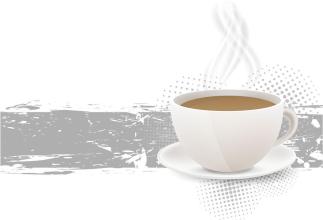Chimere Manor, Lutesilo production area, Western Province of Rwanda
Rwandans have been growing coffee since colonial times, but until 1999, its products were still classified as below Class C and in the global market.
No one cares about it. The reason for the poor quality is that farmers do not have a fixed procedure for washing coffee beans and do not process coffee fruits according to specifications in time. Buyers buy coffee beans at US $0.33 per kilogram, and farmers feed themselves on meagre profits at low prices, but they are still in poverty. In 2000, the mayor of Malaba asked for development assistance from the National University of Rwanda (UNR), which is located near the city of Butare. The following year, the National University of Rwanda helped set up the Joint strengthening Rwanda Agricultural Partnership Project (PEARL). The PEARL project is also supported by several organizations: the United States Agency for International Development (USAID), Michigan State University, Texas A & M University, and many other Rwandan organizations, including the National University of Rwanda, the National Agricultural Laboratory (ISAR) and the Gejali Institute of Technology Management (KIST). In February 2001, PEARL began working with Abauzam Gamby to improve the quality of coffee to meet the standards of the professional coffee market in the United States, and then sell the coffee to the United States.
The first problem for Malaba coffee farmers is to set up a cleaning station. The coffee fruit must be transported to the cleaning station to wash the sugar under the skin of the coffee bean within 12 hours after picking, otherwise the flavor of the coffee will be greatly damaged. In July 2001, with funding from UNR, the Ministry of Culture and Industry of Rwanda (Office des Cultures Industrielles du Rwanda,OCIR-Caf é), ACDI/VOCA and ISAR, they set up the first cleaning station near the main road in the Cyarumbo district. However, the cleaning station was not opened until the harvest time, so only 200 kilograms (441 pounds) of the harvest were washed that year. However, the result was surprisingly good. In 2002, the cleaning station was upgraded to supply more coffee processing. ACDI/VOCA is responsible for funding the construction of pipelines to bring in Mount Huye mineral water and help improve the efficiency of cleaning stations. The pipeline was opened in March 2002.
During the 2002 harvest season, Rwanda introduced a new certification system to ensure that coffee beans shipped to cleaning stations are of proper quality. About half of Abauzam Gambi's members are certified, and cooperatives are able to find buyers in professional markets in Europe and North America.

Important Notice :
前街咖啡 FrontStreet Coffee has moved to new addredd:
FrontStreet Coffee Address: 315,Donghua East Road,GuangZhou
Tel:020 38364473
- Prev

Sidamo production area introduced by Coffee Tree Plantation
Variety classification Arabica bean coffee tree can be divided into two main varieties: Arabica species (Coffea Arabica) and Robusta species (Coffea Robusta/Coffea Canephora). There are also some minor species, such as the Liberian species (Coffea Liberica) and the Alabasta species (Coffea Arabusta), but they are rare on the market. Rob.
- Next

Export of Yerqin Coffee from Ethiopia Coffee Manor
In Ethiopia, the grading and quality control system of coffee is divided into three levels: producer, regional and national. All coffee is inspected by local inspection agencies before leaving the country of origin, and then re-tested at the coffee inspection and grading centers in Addis and Diredawa to determine its quality grade. Coffee is graded before auction and sale, for all involved in production, acquisition,
Related
- Does Rose Summer choose Blue, Green or Red? Detailed explanation of Rose Summer Coffee plots and Classification in Panamanian Jade Manor
- What is the difference between the origin, producing area, processing plant, cooperative and manor of coffee beans?
- How fine does the espresso powder fit? how to grind the espresso?
- Sca coffee roasting degree color card coffee roasting degree 8 roasting color values what do you mean?
- The practice of lattes: how to make lattes at home
- Introduction to Indonesian Fine Coffee beans-- Java Coffee producing area of Indonesian Arabica Coffee
- How much will the flavor of light and medium roasted rose summer be expressed? What baking level is rose summer suitable for?
- Introduction to the characteristics of washing, sun-drying or wet-planing coffee commonly used in Mantenin, Indonesia
- Price characteristics of Arabica Coffee Bean Starbucks introduction to Manning Coffee Bean Taste producing area Variety Manor
- What is the authentic Yega flavor? What are the flavor characteristics of the really excellent Yejasuffi coffee beans?

